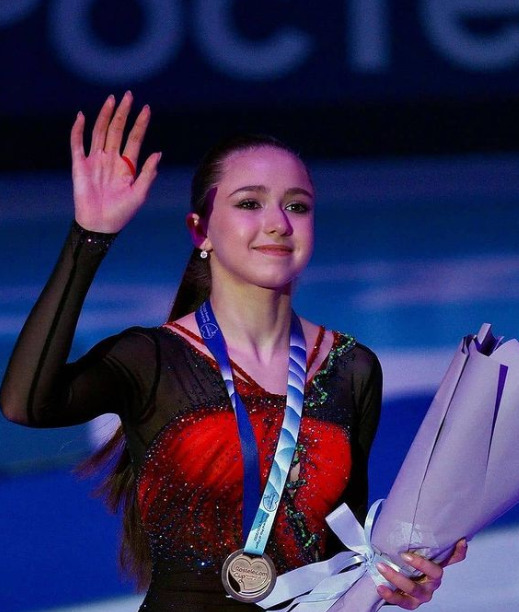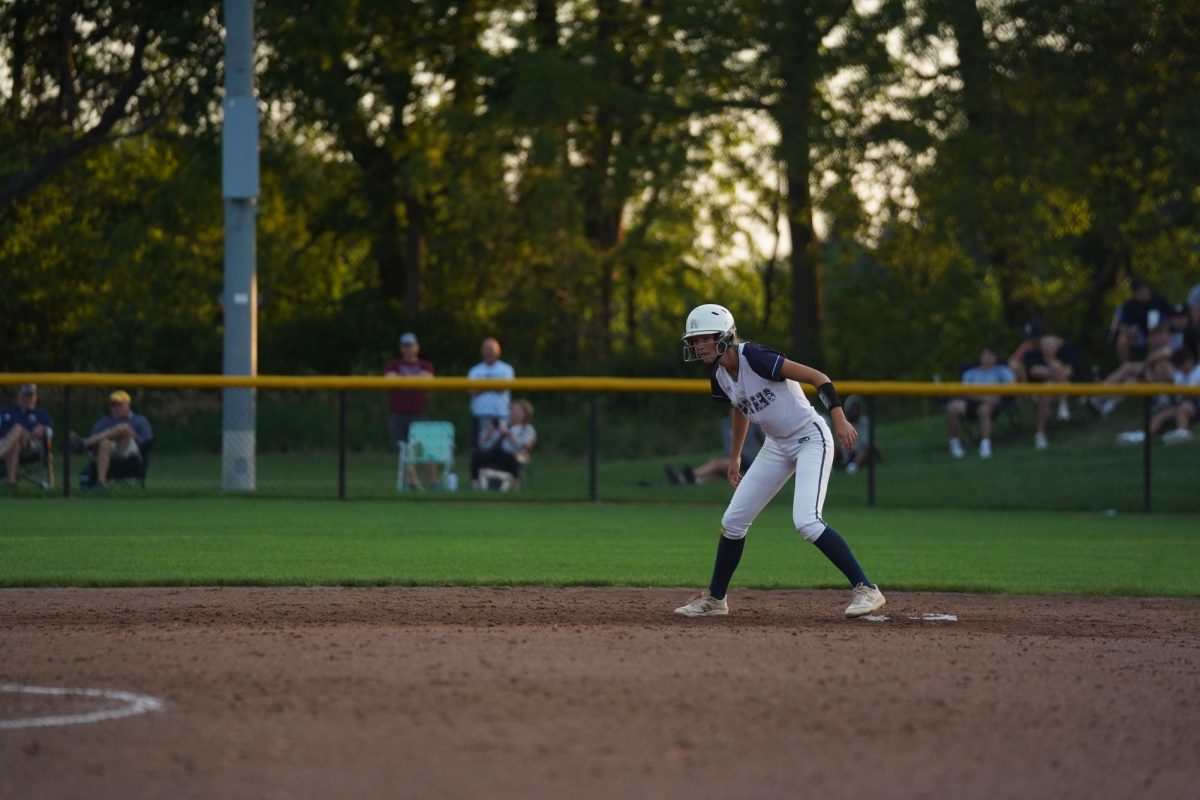The Olympics are renowned for incredible displays of athleticism, but with extreme pressure to be the best, many Olympians have taken unethical measures to ensure victory, leading to controversy. Kamila Valieva, 15-year-old Russian figure skater, was caught in a doping scandal in the 2022 Winter Olympics.
Valieva tested positive for trimetazidine, a banned substance, in a pre-Olympics doping test on Feb. 11. Prior to the positive result, she competed in the team skating event and became the first woman to land a quadruple jump, a major contributor to the Russian victory.
But arbitrators are unsure of Russia’s eligibility to receive gold after this scandal. The team skating medal ceremony has been canceled indefinitely, and lineup for gold remains uncertain. The cancellation impacted nine skaters aiding the U.S. to silver, eight skaters aiding Japan to bronze and possibly two women in the individual skating event.
Valieva’s minor status convoluted the exact consequences the International Olympic Committee would impose. At such a young age, Valieva classifies as a “protected person” by the World Anti-Doping Agency, so responsibility for this positive drug test fell on her coach, Eteri Tutberidze.
Tutberidze is a revered and dominant coach in figure skating – most of her athletes become champions before 18 – but she has a past of brutal training methods, often causing her athletes to face injury or burn out in just a short four-year window. Tutberidze’s unsavory tactics have caused skating enthusiasts and the general public alike to view her in a negative light.
Junior Arissa Khan expressed her stance on where the responsibility for this scandal should fall. “I think that Kamila Valieva’s coach and the Russian Olympic Committee, who put a gold medal over a 15 year-old girl’s health, should be investigated and blamed.” Ultimately, the immense pressure Valieva faced, not only from the grandeur of her Olympic debut but from her coaches and fans, led to the reliance on performance altering substances.
The International Olympic Committee ruled that Valieva could continue competing in the 2022 Beijing Olympics, but she and her competitors would not receive any medals until the case is resolved. This upset many fans and athletes alike as these athletes have undergone intense training and pressure to reach this level yet are not guaranteed a reward. With many athletes competing neck and neck for gold, the lack of definitive medals make the Olympics feel unfinished and unsatisfactory.
Valieva herself has succumbed to the immense pressure of her coach, fans and the spotlight, and many highschool students find themselves relating to her. As her Olympic debut commences, she has accomplished many incredible feats, yet the scandal taints her victory.
Oftentimes, fans are at the root of immense pressure on young athletes as they choose their favorite candidates and passionately cheer for victory, oftentimes creating unnecessary rivalries. Khan revealed the toxicity behind this fanmade competition. “For a lot of younger athletes, they’ve made somewhat of a name for themselves in national and/or international competition, so as they come into the Olympics, a lot of people have a lot of expectations for how they’re going to perform and commentators and fans will often pit them up against the veterans in their sport to create a sort of rivalry,” she explained.
These rivalries flood the scene of the Olympics as they generate strong fan bases and increase viewership. Khan gave the fierce competition between athletes Nathan Chen and Yuzuru Hanyu as an example. Chen and Hanyu were pitted against each other by fans, with headlines such as “Showdown between Chen vs. Hanyu” permeating the media. This rivalry made the men’s figure skating event extremely exciting for many fans.
But this excessive pressure was unproductive as the two athletes had different goals in the Beijing Olympics. “Hanyu’s main goal was to land a quad axel, while Chen’s main goal was to earn the one medal he didn’t have in his book yet. Forcing rivalries like this is really misleading, and can lead to a lot of added pressure to both younger and older athletes,” stated Khan.
These pressures become so massive that some athletes have stepped down from competing before their big debut. In the 2021 Tokyo Olympics, reigning champion and fan-favorite American gymnast Simone Biles withdrew from the team gymnastics event. Biles revealed that the stress of competing on such a grand scale interfered with her mental health, causing her to step down from the competition. “I truly do feel like I have the weight of the world on my shoulders at times. I know I brush it off and make it seem like pressure doesn’t affect me but damn sometimes it’s hard.”
Junior volleyball player Emily Goodpaster also attested to the importance of normalizing open discussion about mental health. “Mental health in sports is definitely overlooked. It is important to find a way to not burn yourself out.” Goodpaster found sports to be a critical aspect for many teenagers, but other facets still remained equally as important. “Sports are important but it is what comes after that is more important, what you do after the sport. Staying healthy is a top priority.”
It is important for renowned athletes to address issues of pressure and mental well-being. Biles made monumental steps by sharing the detriments excessive pressure had on her mental health. The world lauds her work to de-stigmatize these issues. Young athletes across the globe can look to her and feel solace knowing they are not alone in bearing this pressure.
But how can young athletes overcome the pressure they face?
Physical education teacher Eric Royer credited hard work to overcoming pressure. “Whether you are a high school athlete or an olympic athlete, [overcome pressure] by preparing, doing the best you can, going out and competing at your highest level and being proud of your results,” he said. “As long as you don’t have any regrets and do everything you can, that is all you could ask for.” By taking pride in one’s performance, athletes can avert pressure into dedication and motivation.
U.S. figure skater Jason Brown also revealed his de-stress routine. Brown prioritizes relaxation and focus. His pre-competition routine helps alleviate pressure and nerves. He turns his phone on airplane mode, reads, listens to music and tries his best to block out the noise around him and focus on the task at hand.
With the Olympics coming to a close in one week, many athletes push themselves one last time to win the gold. They paint their faces with determination and skill, yet the pressure and scrutiny they face is often overlooked. These Olympians are idolized by fans but are still capable of feeling pressure. By destigmatizing these issues, athletes can work to overcome pressure and compete to the best of their abilities.









